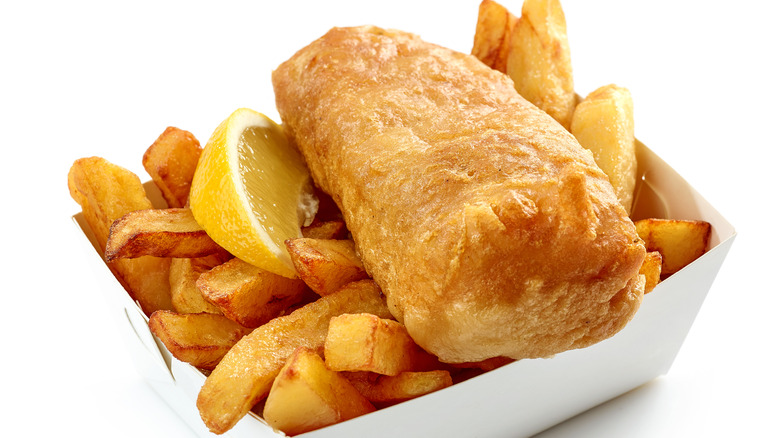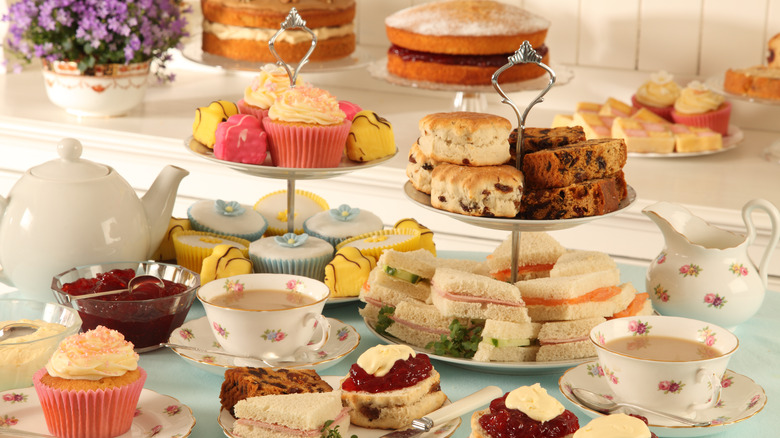The Surprising Cuisine George Orwell Hated
In a time when Mary Berry, Nigella Lawson, Nadiya Hussain, Gordon Ramsay, and Heston Blumenthal share a place of honor on the celebrity cooking stage with Julia Child, Ina Garten, Bobby Flay, Thomas Keller, Masaharu Morimoto, and Jacques Pepin, it might be difficult for us to describe British food as boring, bland or grey. But that was very much the case when "Nineteen Eighty-Four" author George Orwell (whose real name was Eric Arthur Blair, per Britannica) was around. In fact, he hated the cuisine so much he wrote an essay dissing it, called "British Cookery," which was commissioned by the British Council after the Second World War. The Council rejected and returned the essay to Orwell in May 1946, and it remained unpublished for many years (via Orwell Foundation).
Orwell's view of the cuisine he was raised and survived on was unkind, to say the least. The British diet, in his view, was "a simple, rather heavy, perhaps slightly barbarous diet, drawing much of its virtue from the excellence of the local materials, and with its main emphasis on sugar and animal fats" and which tended to disregard spices like garlic, which we think of as standard today. He dismisses coffee in Britain as "nasty" regardless of where it is served, and disses British sauces, which almost always tended to be sweet, regardless of what these were served with. And if you're into fish, forget that, because in Orwell's view, fish is "seldom well cooked" because fish "are unimaginatively boiled or fried, and the art of seasoning them in the cooking is not understood."
Wartime rationing can be blamed for British cooking's mid-20th century decline
Orwell wouldn't have been the first, nor would have been the last, to complain about British cuisine. Emmy- and James Beard award-winning celebrity chef Andrew Zimmern said that at one point, "the food of the British Isles was universally considered to be among the world's worst — boring, bland and boiled" (via BBC America, re-blogged at Teacher STE).
But part of that was triggered by wartime rationing, which worked to ensure that everyone had the same access to ingredients (via Imperial War Museums (IWM)). Great British Chefs says that for most of the 1940s, people struggled to get sugar, butter, eggs, and jam, as well as meat products like sausages and bacon. A German blockade even cut off cheese supplies, 70 percent of which were imported. IWM says that it was not until 1954 that the government practice of food rationing well and truly ended. We can only imagine that Orwell, who passed away in 1950 at the age of 46 (via Britannica), would likely be more than pleasantly surprised to see how so much has changed.

